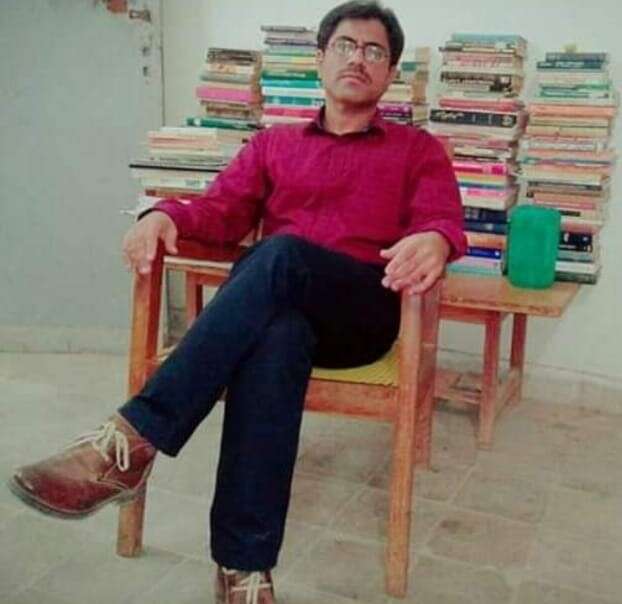Prior to addressing this serious issue, I’d like to provide a brief overview of Paulo Freire’s philosophical evolution in Liberation Pedagogy. As a part of a literary movement in Brazil, Paulo Preire (1921-1997) created his liberation pedagogy concept while working with underprivileged, illiterate peasants and urban poor in his home country. Reading and writing were not enough for Freire; he wanted people to become aware of the circumstances of their existence, particularly those that exploited them and disenfranchised them, via literature.

Naveed. H. Sandeelo
As Freire explained in his book Pedagogy of the Oppressed, Liberation Pedagogy is an educational philosophy aimed at empowering individuals to fight and overcome oppression. “Conscientizacao” (conscientization, critical awareness) is a key aim of Freire’s philosophy. Post-Marxist critical theory was the foundation of Brazilian pedagogue, educator theorist and social activist Freire’s popular education and social idea. In his 1970 book Pedagogy of the Oppressed, he popularized the term. At a time when literacy was required for voting and dictators controlled several South American nations, Freire was teaching the impoverished and uneducated sections of Brazilian society to read. The term originally comes from Frantz Fanon’s 1952 book Black Skins, White Masks, which coined the French term conscienciser. Students must study their own life experiences and the collective history of their racial, ethnic, linguistic, economic, and social groups in conversation with their instructors in order to increase their awareness. A deliberate examination of the objective circumstances in which they live is required, as well as the identification of conditions and people that restrict their ability to define themselves. Freire asserted that the school curriculum and teaching could either indoctrinate students into conforming to an official version of knowledge or push them to build a critical consciousness that enables them to participate in self-liberation. False consciousness is created, for example, by an official history that praises the accomplishments of white Euro-American males and diminishes the contributions of women, African-Americans, Latinos(Hispanics), and other minorities educating a person’s value in terms of money and power and seeing learning as a ticket to succeed in an exploitative economic system cannot be genuinely humanizing.
They must not be neutral or uncommitted in their social, political, and economic views, according to Freire’s teachings. To the contrary, he wants teachers to acquire a critical awareness of the actual power dynamics in schools and the circumstances that impact their pupils; instructors need to be aware that their students’ lives are plagued and blighted by poverty, inadequate access to health care and recreational services as well as drug addiction and gang violence. For example, Teachers who are aware of the harsh realities of their school environments are better able to fight oppressive circumstances and empower their pupils. Real learning, according to Feire, occurs when instructors and students participate in an open and ongoing dialogue. The author takes aim at pupils’ erroneous views of reality as a result of incorrect teaching. He attacks instructors that lead to false, rather than critical consciousness in their perceptions of truth. To give you an example, consider “teacher talk.” It is implied by teacher talk that instructors can transfer information to pupils by telling them what is true: Students passively remember what the instructor says. It’s a kind of educational “banking” where each piece of knowledge is deposited to be paid out later, typically for examination, according to Freire.
Then, we find in Freire’s work that, from day one, the idea of an all-mechanical literacy program was ruled out. When it came to teaching adults to read, he compared it to the issue of waking their awareness. While teaching reading he wanted to create a project in which he would try to go from naiveté to a critical approach. As an introduction to the democratization of culture, this literacy program would be designed with men as its Subjects rather than patient recipients, and it would be an act of creation that could inspire other creative acts, encouraging students to develop the impatience and vivacity that characterizes search and invention in their lives. Man’s duty is not just to exist in the universe, he believed. Through acts of invention and recreation, man creates cultural reality and enriches the world he did not create. Man’s relationship to reality, represented as Subject to an Object, he believed, led to knowledge, which man might communicate via language.
No matter if they are literate or not, guys engage in this relationship. Personhood alone is adequate to comprehend reality’s facts and know anything even if it’s only an opinion. There is no such thing as absolute ignorance or absolute wisdom, and neither is there any absolute knowledge. Human beings however, do not comprehend these facts in their purest state. As they get an understanding of a phenomena or a problem, they also gain an understanding of its causes. In other words, the more folks comprehend genuine causation, the more critical their knowledge of reality becomes. According to Freire, critical consciousness refers to “objects and facts” as they exist empirically, in their causal and contextual relationships….. Naïve consciousness considers itself superior to facts, in charge of the facts and therefore free to interpret them as it pleases. This is not the case. In contrast, critical consciousness integrates with reality, whereas naive consciousness superimposes itself on reality, and fanatical consciousness adapts to reality because of its pathologically blindness. The reflective, critical nature of Freirean praxis is completely represented in the complicated and contentious concept of his conscientization, we may conclude.
Freire’s new pedagogical model was introduced to us, but we also learned a lot from his conversation, which presented us with a completely different approach while defining its educational philosophy in fresh aspects. Freire is regarded as a true educational reformer and pioneer by current critical theorists, as well. When teaching and learning became more than a means of transferring knowledge, it became an opportunity to complete one’s own identity and purpose within a world that needs to be more fair, compassionate and just.

